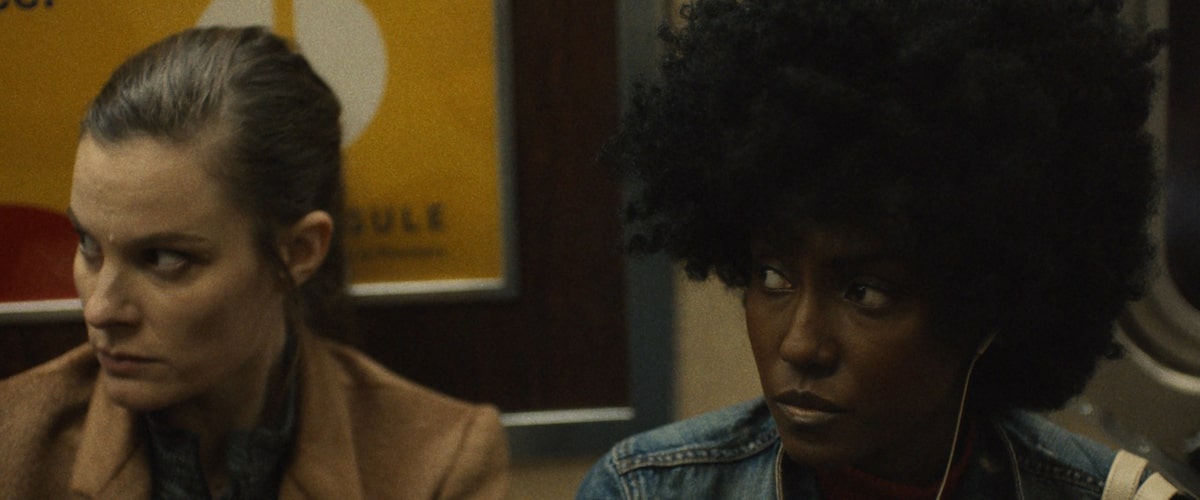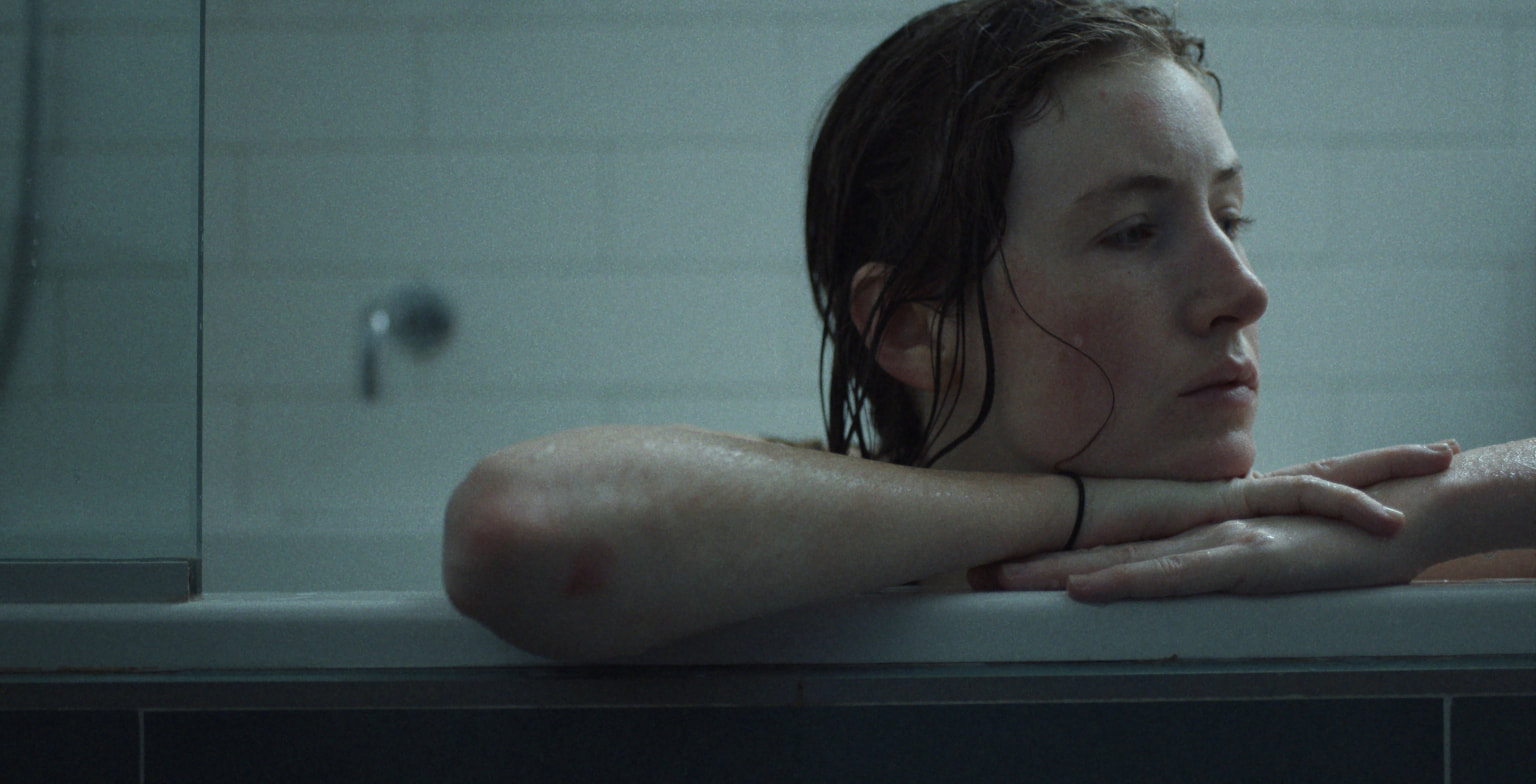|
Review by Sarah Williams
Actress Kate Lyn Sheil exists in a sort of Brooklyn apartment movie stardom, a household name among mumblecore fans yet virtually unheard of to anyone else. These low-key indies have a sort of cult following, raging from the self-insert talky sex comedy (Joe Swanberg’s Autoerotic and The Zone) to the sensorily overloading, creative art horror of Adam Wingard and Amy Seimetz. Materna rests somewhere in the middle. David Gutnik’s directorial debut, produced by two of its four lead actresses (Jade Eshete and Assol Abdullina) follows in the tradition of films like Short Cuts and Magnolia to blend a pseudo-feminist subway story of four women who meet by chance. The film is divided into four sections, each centering a different woman, and particularly their relationship as either a mother or a daughter.
The weight of these stories varies wildly, everything from passivity to a child’s bigotry, reproductive pressure, and found family, but each of these feels like its own movie. There is something to say for the treatise Materna makes on private lives, on the rich complexities of passing strangers, but the omnibus of short films we are essentially given seems to merely skate the surface. Its attempt to give a unifying scope of womanhood through its packaging is especially strange, given that there is little universality outside a vague idea that they are all connected to the idea of motherhood and maternity.
In terms of the individual segments, they are all wildly uneven. From a vision and performance perspective, Sheil’s is the strongest, a near horror psychodrama on the pressures of fertility. Though a bit shy on the script, the segment holds a deep weight of pressure between Sheil’s Jean, a VR tech, and her mother who wishes her to start a family or at least freeze her eggs. This pressurized fountain of youth is further confounded by Jean’s unplanned pregnancy, and the suffocation of the situation is clear. Better written, and by the actresses they center, are two others. One, where a woman detaches from her Jehovah’s Witness mother, and finds surrogate family in an older colleague, is strangely touching, while the final segment is quieting, about three generations of Kyrgyz women and the ghosts in their lives. This segment is what Materna should be pushing towards, a clear, cyclical connection to the maternal lineages it teases.
Most baffling is one chapter starring Lindsay Burdge (fans curious about a new collaboration with Kate Lyn Sheil may be disappointed that this is far-flung from the short buddy comedy Super Sleuths). Her conservative mother deals with her son’s suspension from school, and the segment falls into pained New York liberalism as her family gathers to interrogate his racism. It’s the most chronologically rooted segment, Burdge’s out of touch mother taking away the kid’s Fortnite access, and it messily tries to bite at group-think and cancel culture while plodding into message movie territory without having the grounding to do so. Because of its constant grab for social relevance, Materna bites off so much it never quite gets deep into its false-intersectional tote bag liberal feminism to handle the weighty omnibus of motherhood it wants to be. Materna is now available on VOD. Rating: 2.5/5
0 Comments
Leave a Reply. |
Archives
July 2024
Authors
All
|
|
|
disappointment media
Dedicated to unique and diverse perspectives on cinema! |


